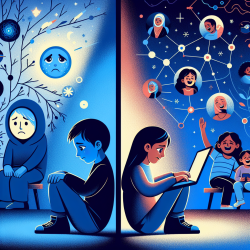Understanding the Hidden Impact of Child Sexual Abuse on University Students
Child sexual abuse (CSA) is a pervasive issue that often remains hidden, yet its impacts can reverberate throughout a person's life, affecting mental health, interpersonal relationships, and academic performance. The research article "Silencing by design: Lessons learned about child sexual abuse from a university sexual assault survey" sheds light on the importance of recognizing CSA in university settings and provides valuable insights for practitioners.
Key Findings from the Research
The study conducted at CQUniversity revealed unexpected disclosures of CSA among university students, emphasizing the need for surveys to include questions about sexual abuse experiences prior to the age of 12. Students reported ongoing sexual victimization into adulthood, with significant negative impacts such as mental health issues, substance abuse, and interpersonal difficulties.
Implications for Practitioners
Practitioners working with university students should be aware of the following:
- Early Intervention: Understanding the history of CSA can help practitioners provide targeted support to students, addressing issues such as PTSD, anxiety, and depression.
- Trauma-Informed Care: Implementing trauma-informed practices can create a supportive environment for students to disclose their experiences and seek help.
- Collaboration with Universities: Working closely with university support services can enhance the availability of resources and counseling for students affected by CSA.
Encouraging Further Research
The study highlights the need for further research into the impact of CSA on university students, without age restrictions. Practitioners are encouraged to engage in research initiatives that explore the long-term effects of CSA and the effectiveness of various intervention strategies.
Conclusion
Child sexual abuse is a critical issue that requires attention from both researchers and practitioners. By understanding the complexities of CSA and its impact on university students, practitioners can improve their skills and provide better support to those affected. To read the original research paper, please follow this link: Silencing by design: Lessons learned about child sexual abuse from a university sexual assault survey.










